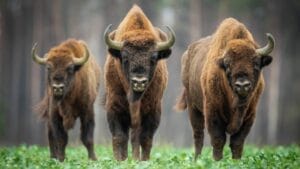In a landmark moment for conservation, European bison have been reintroduced to Portugal for the first time in over 10,000 years. This rewilding initiative, taking place in the Greater Côa Valley, is a significant step towards restoring biodiversity and enhancing ecosystem health in the region.
The arrival of the bison, which were translocated from Poland, marks a critical milestone in efforts to reintroduce these majestic animals to areas where they have long been absent. This project, spearheaded by Rewilding Portugal, is part of a broader strategy to rejuvenate natural landscapes and support European wildlife populations.
Rewilding to Combat Wildfires
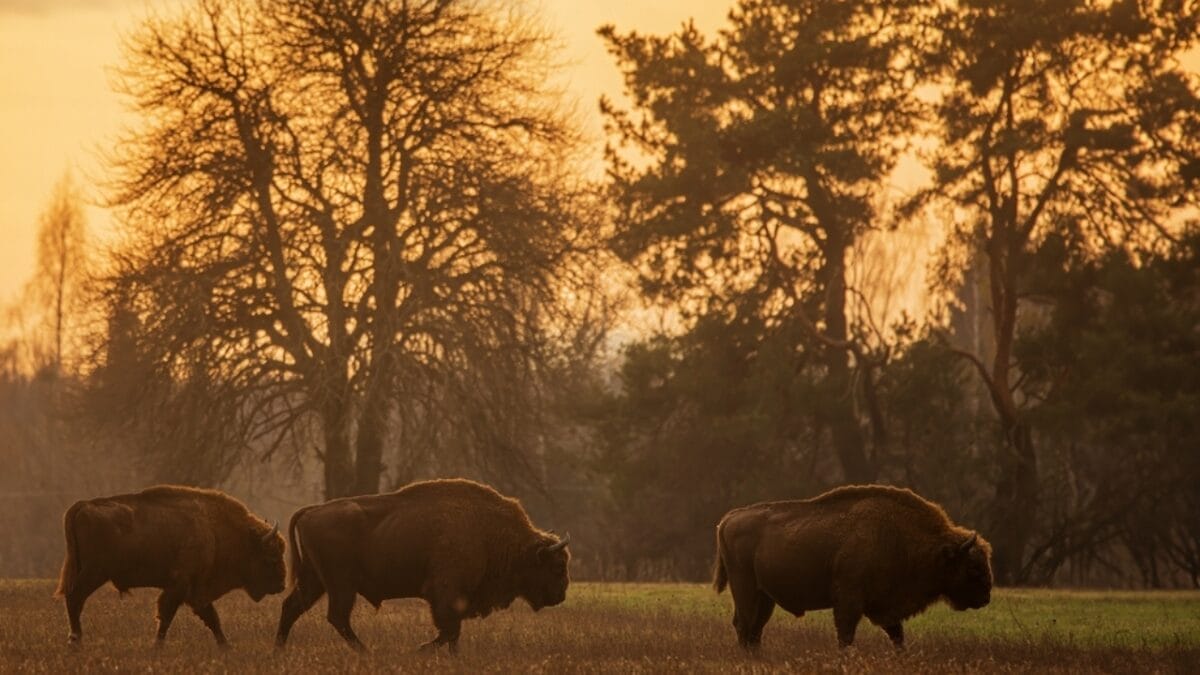
Portugal has been grappling with increasingly severe wildfires, exacerbated by climate change and rural depopulation. The absence of traditional livestock grazing has allowed flammable vegetation to proliferate, creating a tinderbox scenario.
Enter the European bison, nature’s own wildfire prevention squad. These large grazers help manage vegetation, creating natural firebreaks and reducing the risk of catastrophic fires by munching through the underbrush that fuels these blazes.
By maintaining open landscapes, bison also help prevent the encroachment of shrubs that contribute to wildfire risks. (ref)
Biodiversity Boosters
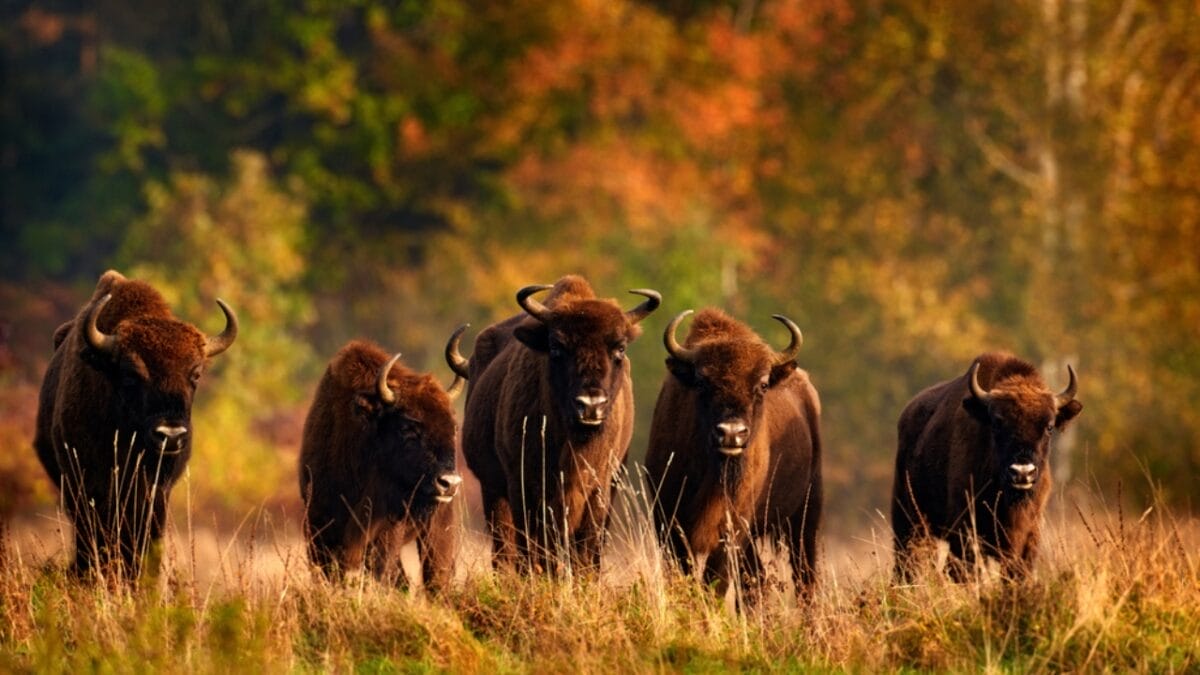
The ecological role of the European bison extends far beyond fire prevention. As keystone species, their grazing, foraging, and trampling activities create a mosaic of habitats that support a wide variety of flora and fauna. This biodiversity boost is essential for the ecosystem’s health, ensuring that multiple species thrive.
Studies have shown that the presence of bison can significantly enhance biodiversity, from plants to insects and other wildlife. Their activities also contribute to the creation of micro-habitats that benefit numerous species.(ref)
Climate Champions
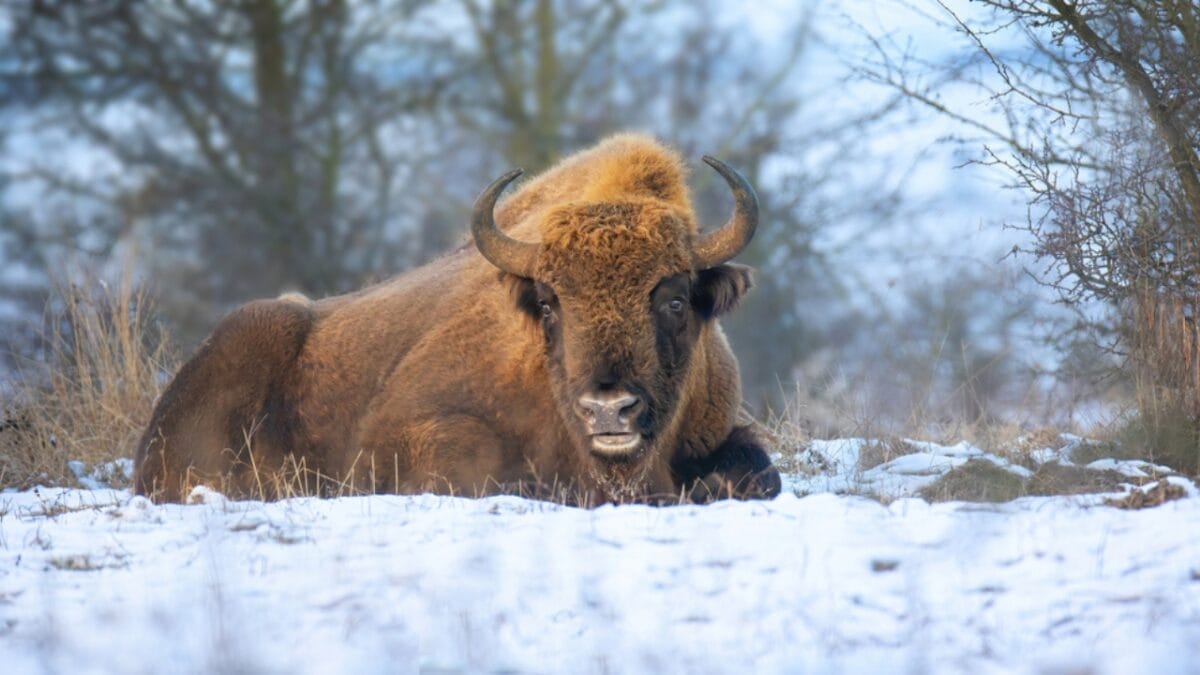
In addition to promoting biodiversity, the European bison plays a crucial role in mitigating climate change. Their grazing patterns help sequester carbon in the vegetation they maintain and the soil. This natural carbon capture is a critical tool in the fight against global warming.
A study highlighted that bison can help grasslands capture significantly more carbon, enhancing the landscape’s ability to act as a carbon sink. By supporting the growth of nature-based tourism, the bison indirectly promote sustainable economic development.(ref)
Community & Economic Benefits
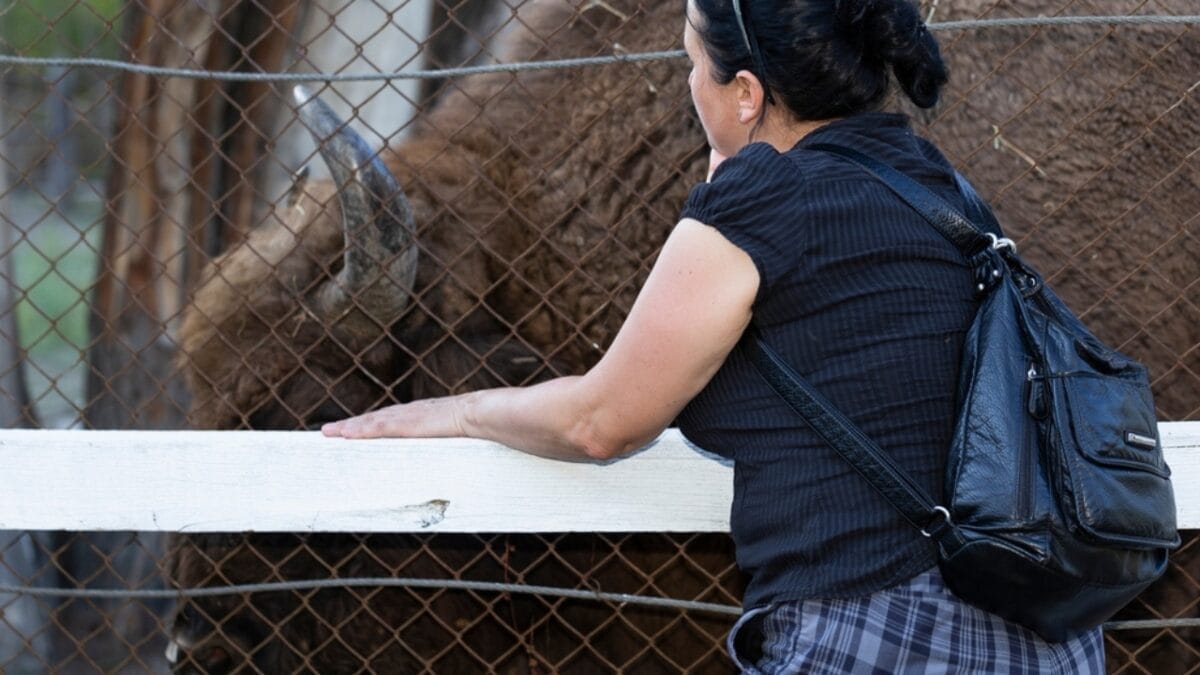
Rewilding is about more than environmental benefits; it’s also about revitalizing rural economies. The presence of European bison is expected to boost nature-based tourism in the region.
This new attraction can attract visitors worldwide who are eager to see these majestic creatures in their natural habitat, thus providing a much-needed economic injection to local communities. The Rewilding Portugal team is planning guided tours to ensure visitors can experience this natural wonder responsibly.
Looking Forward
The reintroduction of the European bison to Portugal is a beacon of hope, demonstrating how strategic conservation efforts can yield multifaceted benefits. As these magnificent creatures roam the Greater Côa Valley, they not only reconnect us with a distant past but also pave the way for a more sustainable and biodiverse future.
The success of this initiative could serve as a model for other regions, showing that with dedication and strategic planning, we can restore the balance of our natural world.
Davin is a jack-of-all-trades but has professional training and experience in various home and garden subjects. He leans on other experts when needed and edits and fact-checks all articles. Also an aspiring cook we he researches and tries all kinds of different food recipes and shares what works best.
